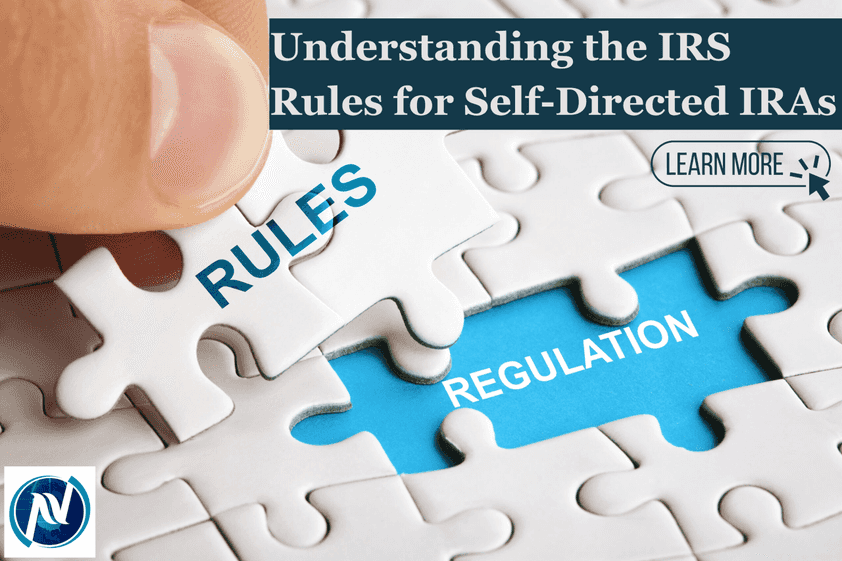Understanding the IRS Rules for Self-Directed IRAs
When many people hear about Self-Directed IRAs, they get excited. The possibilities! Alternative assets galore, plus all sorts of unique ways to make money in a retirement account. But there is a caveat: these IRAs are not the wild west. The IRS puts certain rules into effect for Self-Directed IRAs. And if you want to …

When many people hear about Self-Directed IRAs, they get excited. The possibilities! Alternative assets galore, plus all sorts of unique ways to make money in a retirement account. But there is a caveat: these IRAs are not the wild west. The IRS puts certain rules into effect for Self-Directed IRAs. And if you want to avoid the penalties and fines, they might slap on you for violating these, you’ll need a lay of the land. Here are some of the key regulations and rules you’ll want to know about before you start investing in alternative assets within your IRA:
Prohibited Transactions in a Self-Directed IRA
One of the first things you’ll need to understand is prohibited transactions. These are transactions that the IRS considers too risky or potentially self-serving. And that’s why they’ll penalize you if you’re caught violating them.
For example, you can’t use your IRA to buy property that you or your family members will use for personal purposes. You also can’t lend money from your IRA to yourself or other disqualified persons. In short, a good rule of thumb is not to use your IRA to interact with anyone you know. Why? Because this creates an immediate benefit for you—and you’re supposed to be using your retirement account for your long-term good. That’s what the tax protections are there for.
Who are the people you should avoid working with? Disqualified persons include family members like your parents, children, or your spouse. It’s important to remember that you can’t do business with these individuals through your Self-Directed IRA, even if you think it’s a good deal. So, while it’s tempting to invest in a property for the family or loan money to a relative, these types of transactions could lead to hefty penalties. It’s much easier to simply avoid it and treat your Self-Directed IRA as it is: as a separate entity.
Unrelated Business Income Tax (UBIT)
Another rule to keep in mind? The Unrelated Business Income Tax, or UBIT. If your Self-Directed IRA invests in certain types of businesses or real estate that generate active income, your IRA could be subject to this tax. UBIT applies if the business within your IRA operates in a way that generates income unrelated to its retirement purpose. For example, if you invest in an active business like a restaurant or rental property where you’re involved in day-to-day management, UBIT could apply.
UBIT is designed to level the playing field between tax-advantaged retirement accounts and regular taxable investments. So, before you dive into certain investments, you’ll need to understand how UBIT might affect your bottom line.
Contribution Limits and Required Minimum Distributions
Of course, like any other retirement account, Self-Directed IRAs come with contribution limits. These limits apply to the total contributions you make across all your IRAs. If you exceed these limits, the IRS will impose a penalty, so it's essential to keep track of your contributions.
Additionally, once you reach age 73, you’ll be required to begin taking distributions from your IRA. If you don’t take these required minimum distributions (RMDs), you could face penalties. It’s not fun, especially when you’ve worked so hard to put that money aside, but it’s also a critical way to ensure that you have a good way to approach your overall retirement health. If you’re ready to get started—and you know a little more about how the IRS expects you to invest—this is a great time to start investing.
Interested in learning more? Reach out to us here by dialing 866-7500-IRA.
Get 15 minutes of free expert advice.
If you're not sure whether a self-directed IRA is right for you, schedule a 15-minute call with our industry veteran team. We'll explain the possibilities, help you evaluate your options, and answer all your questions - no pressure, no obligations.
